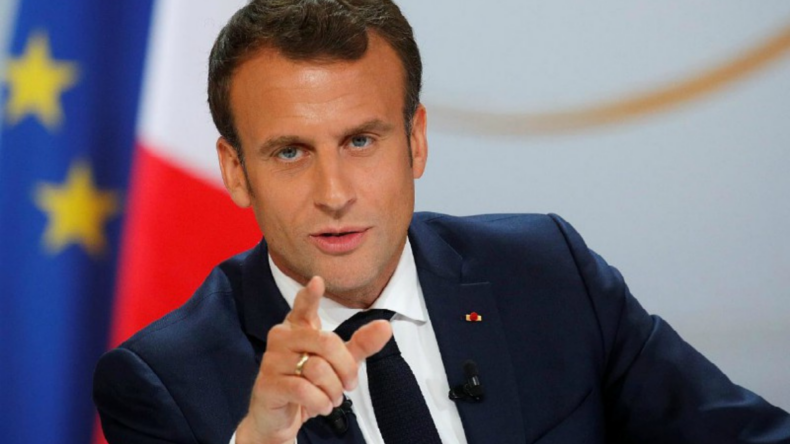French President Emmanuel Macron unveiled a 30-billion-euro ($35 billion) plan to reverse years of industrial decline in the European Union’s second-largest economy, including 4 billion euros for the transport sector to support electrified vehicles other initiatives.
The plan presented Tuesday, called “France 2030,” would invest over five years in sectors including renewable energy sources, electric vehicles, semiconductors, and robotics.
“I want us to look ahead and see our weaknesses and strengths,” Macron said in a speech at the Elysee Palace. “We need the country to produce more” that’s why France is all set for its industrial revival plan.
Macron said the government would continue to support the automotive industry’s transition to electrification, and he set a domestic production target of 2 million full-electric and hybrid vehicles by 2030.

“We need an industrial response to the challenge of the new mode of transport,” he said, adding that it was essential to produce low-emission vehicles in France if the country wanted to have a clean vehicle fleet.
Among recent initiatives, Renault has set up an electric vehicle production hub in northern France. Stellaris has a battery-cell joint venture with Total that aims to build a giga-factory in France.
“We need to focus on disruptive innovation technologies on new vehicles,” Macron said, citing three battery giga-factories planned for France.
The France is all set for its industrial revival plan and has been among the most generous in Europe in offering electric and hybrid vehicles incentives. Under an 8-billion-euro support measure put in place during the COVID-19 pandemic in May 2020, buyers could get more than 10,000 euros off the price of a new full-electric car.
Macron said that France would also spend 6 billion euros to support electronics production and innovation, including semiconductors.
Small companies will benefit the most from the Industrial Revival Plan
France 2030 is the latest in the country’s long history of pumping public money into a hoped-for industrial renaissance. After the global financial crisis following the collapse of Lehman Brothers in 2008, then-President Nicolas Sarkozy launched a 35-billion future investment program, which has replenished three times.
Macron said his plan would take more significant risks and not rely on well-established industrial firms. Half of the money will go to small companies, with a pledge to be green. If projects fail, the funds are quick to be reallocated, Macron said.
Despite the various efforts by successive governments, the share of industry in the French economy has declined almost without interruption, and France hasn’t recorded a goods trade surplus since 2002. Six months prior to the presidential election, Macron is under pressure to show he can reverse those fortunes, particularly in former industrial heartlands, where he struggled to win votes in 2017.
Macron said he wants to create “a virtuous cycle — innovate, produce, export — to finance our social model.”
The France’s industrial revival plan includes 2030 includes:
⦁ Eight billion euros for nuclear, hydrogen and renewable energy, including building a new small nuclear reactor.
⦁ Four billion euros for transport and mobility, with a target to produce 2 million electric and hybrid cars and the first low-emission aircraft.
⦁ 1.5 billion euros for food and agriculture.
⦁ 1.5 billion euros for moon-shot projects such as virtual reality, cultural production, seabed exploration.
⦁ Six billion euros for robotics.
⦁ Two billion in training for booming sectors.
⦁ Five billion euros to support industrial start-ups.
The initiative comes only a year after the 100 billion euro “France Relaunch” program, which also aimed to go beyond crisis spending to address the country’s longer-term problems of low investment and hiring. There will still be around a third of that program unspent by the government’s expectations at the end of this year.
The investment plans are in keeping with French industrial policy but increasingly put Macron out on a limb in Europe, where other countries have begun talking about the need to return to some form of fiscal discipline after crisis-spending inflated deficits during COVID-19. The three broad objectives of France 2030 are building small reactors in France, becoming the leader of green hydrogen, and “decarbonizing” French industry.
Know About :- Automobile sales drop due to failed semiconductor supply chains













